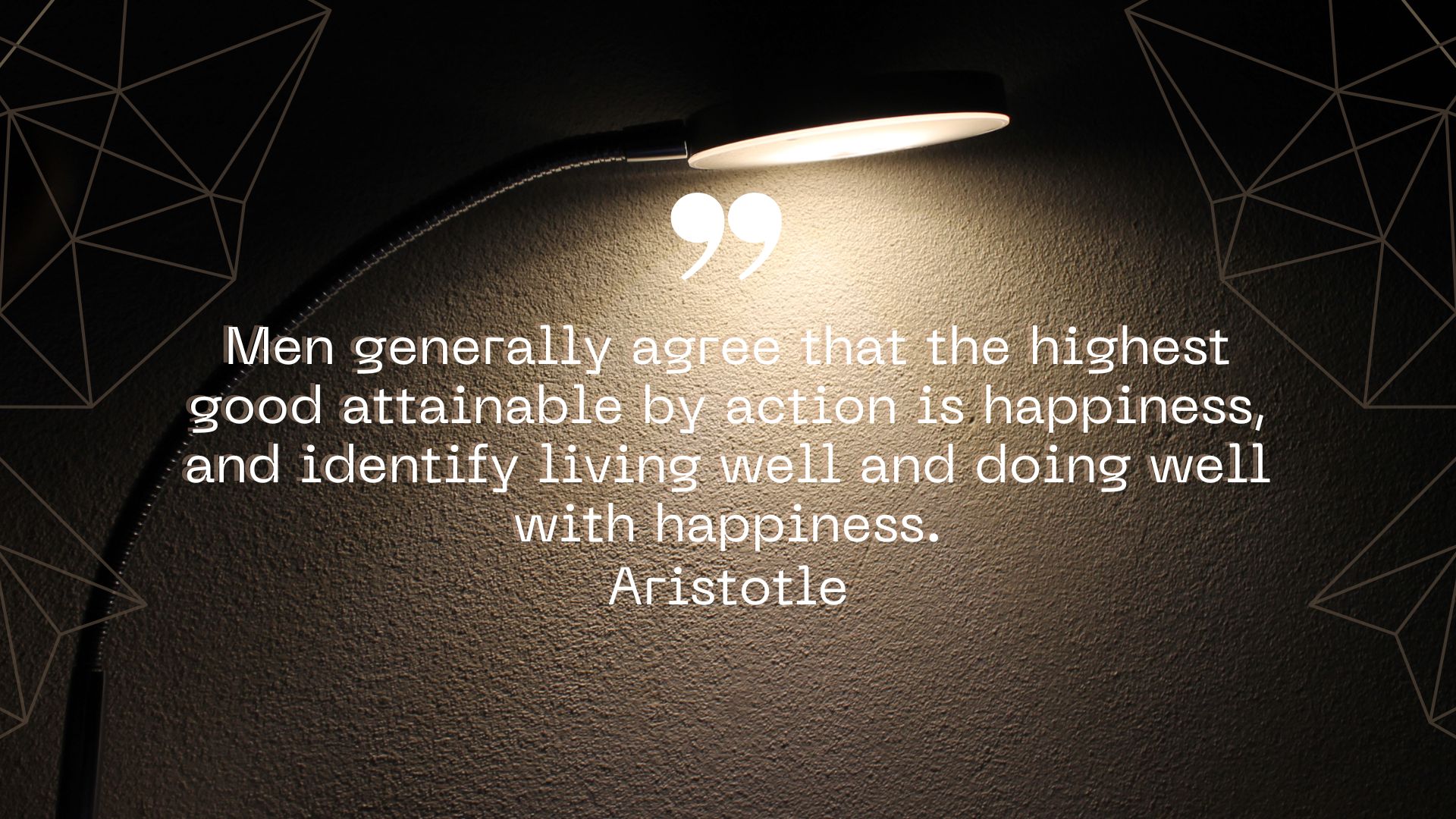Men generally agree that the highest good attainable by action is happiness, and identify living well and doing well with happiness.
Aristotle___
It suggests that most people believe that the ultimate goal of their actions is to achieve happiness, and that they equate living well and doing well with being happy. This idea is often referred to as “eudaimonia,” which is a concept in ancient Greek philosophy that refers to a state of well-being or flourishing. The concept of eudaimonia is closely related to the idea of happiness, and is often translated as “happiness” or “human flourishing.” In ancient Greek philosophy, eudaimonia was considered the highest good and was believed to be the ultimate goal of all human action.
Happiness
Happiness is a feeling of contentment, joy, or positive well-being. It is a subjective experience that varies from person to person and is influenced by individual circumstances, expectations, and values.
In terms of its logical foundations, happiness is often considered a fundamental human desire or goal. From a logical perspective, the pursuit of happiness is seen as a natural and universal human motivation, as all people seek to improve their quality of life and feel good about themselves and their circumstances.
Ideologically, happiness has been approached and understood in a variety of ways throughout history. In some philosophical and religious traditions, happiness is seen as a reward or a state of grace that is achieved through living a virtuous life or following certain moral or spiritual principles. In other traditions, happiness is viewed as a more secular and individualistic concept, with an emphasis on personal fulfillment and self-actualization.
Regardless of how it is understood, happiness is often seen as an important aspect of human life and well-being. Many people strive to achieve happiness in their personal and professional lives, and the pursuit of happiness is often considered a fundamental human right.
Personal fulfillment and self-actualization
Personal fulfillment and self-actualization are closely related concepts that refer to the realization of one’s full potential and the achievement of a sense of purpose or meaning in life. Personal fulfillment is often associated with feelings of satisfaction and contentment, as well as a sense of accomplishment and self-worth. Self-actualization, on the other hand, refers to the process of developing and realizing one’s full potential, both as an individual and as a member of society.
Personal fulfillment and self-actualization are often seen as important aspects of human well-being and happiness. Many people strive to achieve these goals in order to feel more fulfilled and satisfied with their lives. The pursuit of personal fulfillment and self-actualization can involve a variety of activities, such as education, career development, personal growth, and community service.
There are many different theories and approaches to personal fulfillment and self-actualization, and different people may have different ideas about what these concepts mean and how to achieve them. Some people believe that personal fulfillment and self-actualization are closely linked to one’s values and goals, while others see them as more subjective experiences that are influenced by individual circumstances and experiences. Ultimately, personal fulfillment and self-actualization are personal goals that can be pursued and achieved in a variety of ways.




